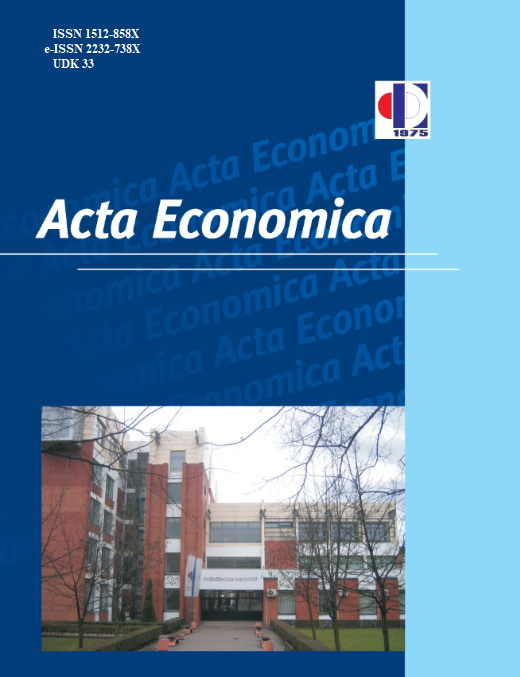Foreign Exchange Reserves as a Shock Protection – the Example of Bosnia and Herzegovina
DOI:
https://doi.org/10.7251/ACE1727093SAbstract
Significant increase in foreign exchange reserves in recent decades, including the period of the global financial crisis of 2008 and 2009, has intensified research on the importance and role of foreign exchange reserves and their adequate level. Although the financial crisis has emphasised the importance of maintaining an adequate level of foreign exchange reserves, there is insufficient consensus on the level of foreign exchange reserves that should be maintained in the event of crises and shocks.This paper explores foreign exchange reserves of Bosnia and Herzegovina and their adequate level over the period from 2005 to 2015 as well as in the event of a shock which can be generated by internal or external factors.
The aim of this paper is to examine whether foreign exchange reserves of Bosnia and Herzegovina were sufficient in the observed period as well as in the event of shocks that national economy could be exposed to.
For the research purposes, comparative method and the application of sensitivity analysis and scenarios were used to analyse and evaluate the adequacy of foreign exchange reserves of Bosnia and Herzegovina. The final results demonstrate that
during the observed period foreign exchange reserves of Bosnia and Herzegovina
were adequate. However, in the case of extreme shocks Bosnia and Herzegovina
does not possess the sufficient level of foreign exchange reserves. Such findings recommend
to the Central Bank of Bosnia and Herzegovina, together with other economic
policies, additional efforts to accumulate foreign exchange reserves in the
medium term.
Downloads
Published
2018-12-24
Issue
Section
Чланци

